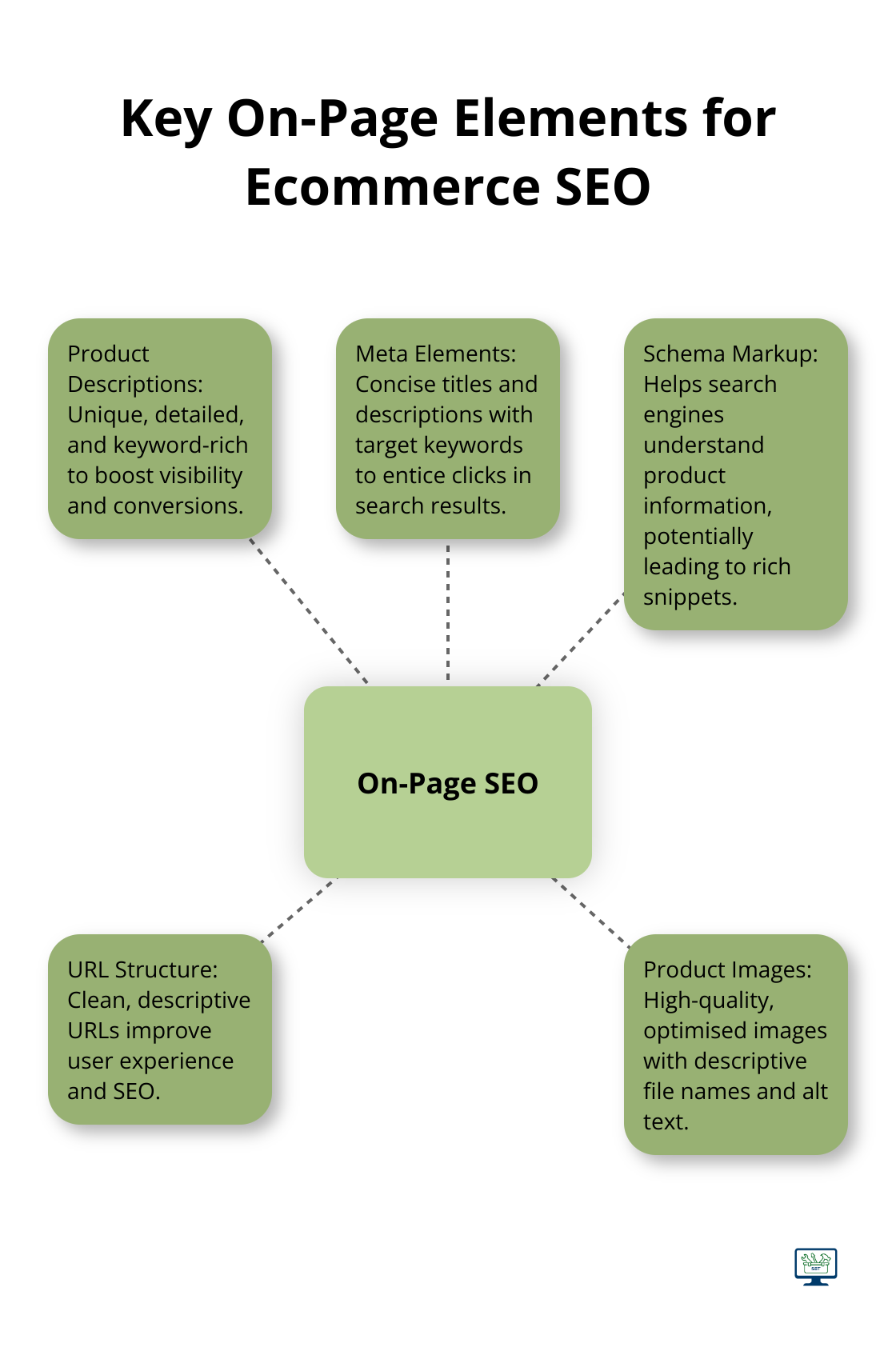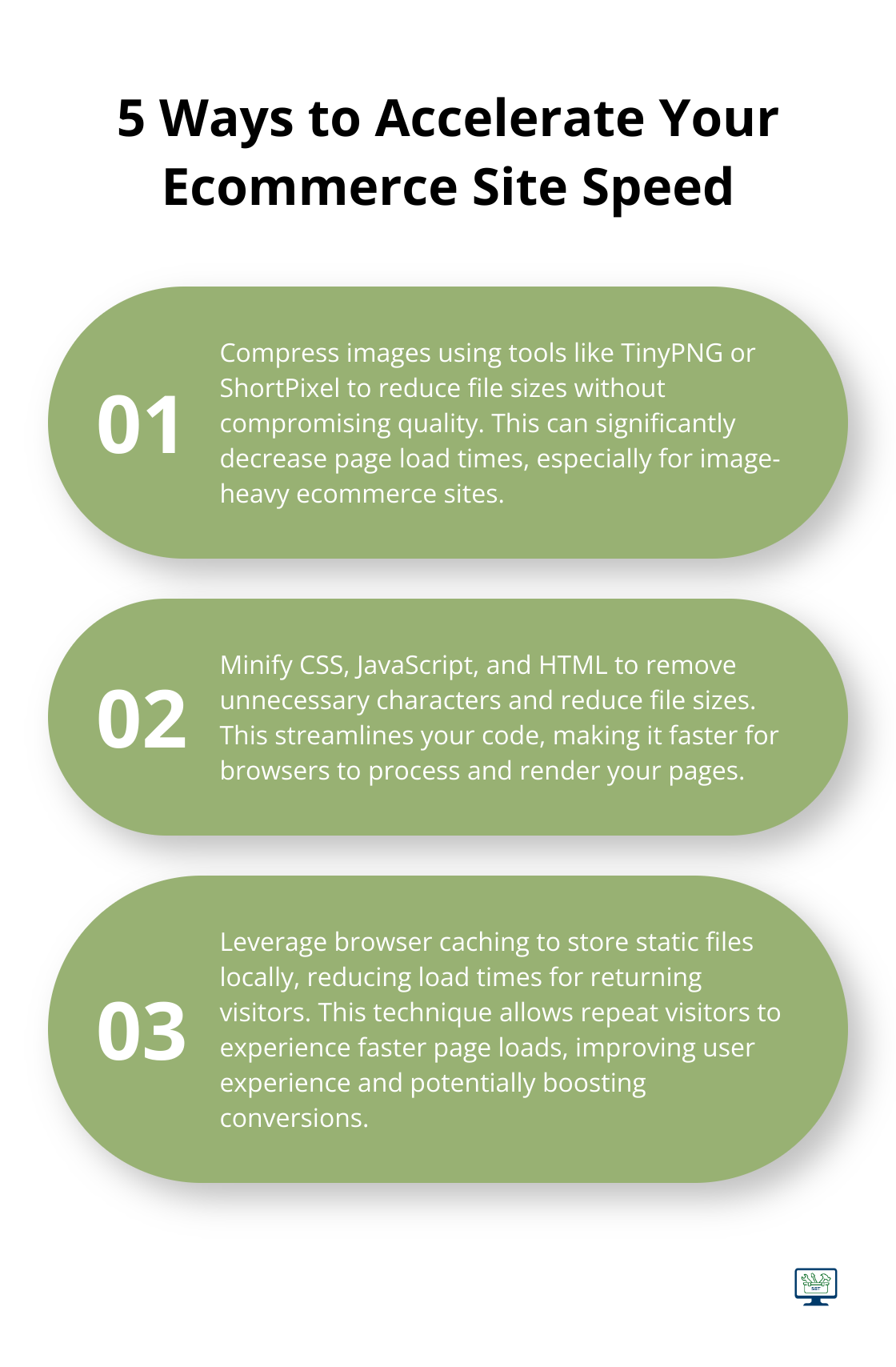Ecommerce SEO: Drive More Sales with Better Rankings

Published On Jul 02,2025
At WebsiteStrategies, we know that ecommerce SEO is the key to unlocking your online store’s full potential. With the right strategies, you can boost your rankings and drive more sales.
In this post, we’ll share proven tactics to optimise your product pages, improve technical aspects, and create compelling content that search engines and customers love. Get ready to transform your ecommerce site into a sales powerhouse.
How to Optimise On-Page Elements for Ecommerce Success
On-page SEO forms the foundation of a successful ecommerce strategy. It’s about making your product pages irresistible to both search engines and shoppers. Let’s explore the key elements that will boost your visibility and conversions.

Craft Compelling Product Descriptions
Your product descriptions are prime real estate for SEO. They should be unique, detailed, and packed with relevant keywords. Don’t copy manufacturer descriptions verbatim. Instead, highlight unique selling points and address common customer questions. Implementing product descriptions for ecommerce SEO can significantly improve your website’s visibility and conversion rates.
Master Your Meta Elements
Meta titles and descriptions create your first impression in search results. They should be concise, include your target keyword, and entice clicks. Keep descriptions up to 155 characters to avoid truncation in search results. The right length depends on the message you want to convey, but you should take enough space to effectively communicate your product’s value.
Implement Schema Markup
Schema markup is a powerful tool for ecommerce sites. Implementing it can significantly improve your website’s SEO, but mistakes during the process can lead to issues that negatively affect your rankings. It helps search engines understand your product information, potentially leading to rich snippets in search results.
Streamline Your URL Structure
Clean, descriptive URLs improve user experience and SEO. Include your target keyword and keep it short. For example, “yourstore.com/category/product-name” is much better than a string of numbers and symbols.
Optimise Product Images
High-quality images are crucial for ecommerce success. They should be visually appealing and optimised for fast loading. Use descriptive file names and alt text that include your target keywords.
These on-page optimisations can transform an ecommerce site’s performance. On-page SEO is an ongoing process, so it’s important to regularly review and update your content to keep it fresh and relevant.
Now that we’ve covered on-page elements, let’s shift our focus to the technical aspects of SEO that can make or break your ecommerce success.
Master Technical SEO for Ecommerce Success
Technical SEO forms the backbone of a high-performing ecommerce website. These behind-the-scenes optimisations can dramatically boost rankings and sales.
Accelerate Your Site Speed
Website load times can fundamentally alter your website’s user experience, customer engagement, and conversion rate. To improve your site speed:

- Compress images (tools like TinyPNG or ShortPixel can help)
- Minify CSS, JavaScript, and HTML
- Leverage browser caching
- Use a Content Delivery Network (CDN)
Secure Your Site with HTTPS
HTTPS is crucial for visibility in Google, building trust, and protecting your site, customers, products, and profits. Migrate your entire site to HTTPS, including all subdomains and resources.
Build a Comprehensive XML Sitemap
An XML sitemap helps search engines discover and index your pages efficiently. This is particularly important for ecommerce sites with thousands of products. Generate and submit your sitemap to search engines using specialised tools.
Focus on Mobile Optimisation
Mobile commerce sales are projected to reach $3.56 trillion in 2021, making mobile optimisation non-negotiable. Ensure your site is responsive, loads quickly on mobile devices, and provides a seamless user experience across all screen sizes.
Eliminate Duplicate Content
Duplicate content often plagues ecommerce sites, especially those with large product catalogues. Address this issue by:
- Using canonical tags to indicate preferred versions of pages
- Creating unique product descriptions
- Implementing proper URL parameters to avoid duplicate content from faceted navigation
Technical SEO requires ongoing attention. Regular audits will help you identify and fix issues promptly. A solid technical foundation sets the stage for improved rankings and increased sales.
Now that we’ve covered the technical aspects, let’s explore how content marketing can supercharge your ecommerce SEO efforts. The next section will reveal strategies to create compelling content that both search engines and customers will love.
How Content Marketing Boosts Your Ecommerce SEO
Content marketing is a powerful tool for ecommerce SEO. This guide will walk you through some of the most common and effective improvements you can do on your site. Let’s explore effective content marketing strategies for ecommerce businesses.
Blog Your Way to Success
A well-maintained blog can significantly boost your ecommerce SEO efforts. Create content that addresses your customers’ pain points and questions. For example, if you sell outdoor gear, write about hiking tips, camping recipes, or gear maintenance. This approach attracts potential customers and provides opportunities to naturally include relevant keywords.
Create Powerful Buying Guides and How-To Articles
Buying guides and how-to articles attract customers in the consideration stage of their buying journey. This guide will explore how reviews directly impact SEO performance and conversion rates and how to use them strategically to fuel long-term eCommerce growth.
Use User-Generated Content to Your Advantage
User-generated content (UGC) is a goldmine for ecommerce SEO. It provides fresh, unique content and builds trust with potential customers. Encourage your customers to leave reviews, share photos of their purchases, or create video testimonials.
Optimise Your Category Pages
Category pages often get overlooked in ecommerce SEO strategies, but they present a significant opportunity. Add unique, informative content to these pages to make them more valuable for both users and search engines.
For example, if you have a category page for running shoes, include a brief guide on how to choose the right running shoes, or discuss the latest trends in running footwear. This approach can help your category pages rank for broader, more competitive keywords.
Harness the Power of Video Content
Video content has become increasingly important for ecommerce SEO.

Try to create product demonstration videos, customer testimonials, or even behind-the-scenes looks at your business. Optimise your video titles, descriptions, and tags with relevant keywords to improve their visibility in search results.
Final Thoughts
Ecommerce SEO empowers online stores to increase visibility and drive sales. We recommend you optimise product descriptions, meta elements, and images while implementing schema markup for better search engine understanding. Technical SEO aspects such as site speed, HTTPS security, and mobile optimisation play a vital role in your website’s performance.
Content marketing acts as a powerful tool for ecommerce SEO success. You should create valuable blog posts, informative buying guides, and leverage user-generated content to boost engagement and rankings. Regular site audits and content updates will help you stay ahead in the competitive ecommerce landscape.
For expert guidance to elevate your ecommerce SEO strategy, consider partnering with WebsiteStrategies. Their team can provide tailored SEO consultancy and comprehensive strategies to help your online business thrive in the digital marketplace (while staying up-to-date with the latest SEO trends and best practices).
